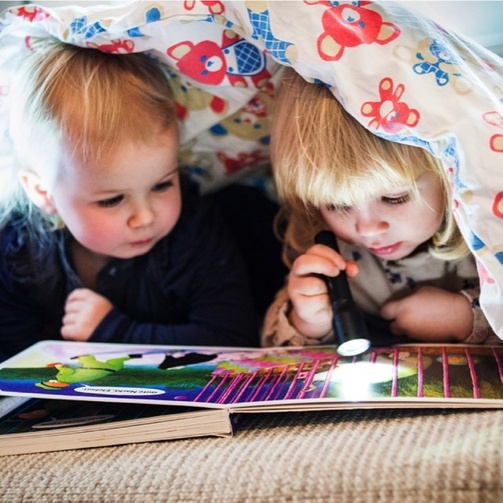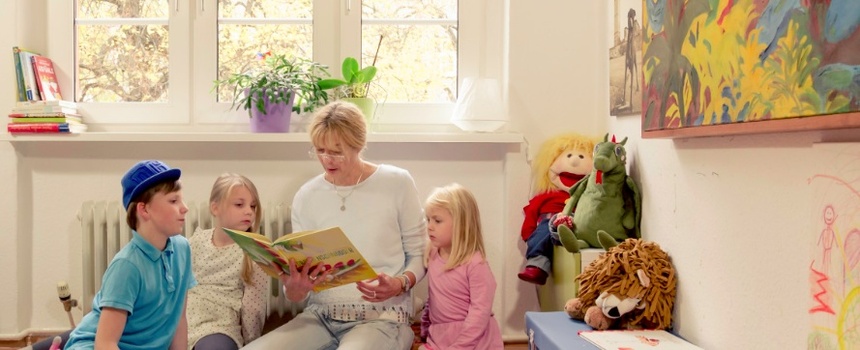 Have you ever put sugar on your chips?
Have you ever put sugar on your chips?
Reading aloud for a successful start of school in Germany
Have you ever put sugar on your chips? Can marmots whistle? Are all chickens afraid? And what does being afraid even feel like? These and thousands of other questions arise when children are read to at an early age. Creative questions are followed by creative answers and funny conversations. There is both laughter and wonder. Can you remember what it was like when you were being read to? The tone of the voice as you listened? The surprising twist in your favourite story that you liked to listen to over and over again? When parents regularly read to their children after birth and talk to them about the stories, they do something very important: Children acquire new vocabulary, learn to express thoughts and feelings and it stimulates their imagination.
Necessity
Reading aloud and interaction events for children from disadvantaged families.
Activity
The organisation Librileo hosts reading events for small children in Germany.
Countable effort
Number of reading events that take place.
Result
The children develop language skills and improve their social competence.
Systemic effect
Children from socially disadvantaged families have a more successful start to their schooling and improve their educational prospects.
Background
While many children in Germany are read to every day, there is also a large proportion of small children who are not familiar with this situation. According to the Stiftung Lesen (Reading Foundation), every fifth child old enough to be read to actually is not – either by their mother or by their father (Stiftung Lesen, 2013). These are families who are often affected by child poverty. This is not only about the lack of clothing or a holiday programme, but above all about the lack of daily and age-appropriate education and development opportunities. Studies show that families who have to cut back on their finances perceive their everyday life as stressful and often fail to support their children in their personal development due to the overwhelming pressure on them. The most obvious signs of child poverty are when children learn to speak much more slowly than others and that they do not develop a joy of learning and are reluctant to go to school. Many of these families therefore need support in order to be able to sufficiently support their children in their development.
The good deed
Your donation today is helping to read a story to a child in Germany. For this purpose, the organisation Librileo creates cosy places for children and families to read aloud in different German cities. The children ask curious questions, experience appreciative community and discover the joy of books. They learn new words and make new friends. The time spent together with other children also strengthens their social competence and self-confidence. The reading events and the access to books are important steps to successfully enter school at a later stage – confident in their language skills and thirsty for learning.

AboutGermany
Berlin
82,100,000
46,136
Placed 5 of 189
With more than 25 million copies sold, The Very Hungry Caterpillar by Eric Carle is the best-selling picture book in Germany.
About the organization and further information
Librileo gemeinnützige UG
Website
https://librileo-gemeinnuetzig.de

Further information and source
- Bertelsmann Stiftung, 2016. Studie Armutsfolgen für Kinder und Jugendliche
- Bertelsmann Stiftung, 2016. Factsheet Kinderarmut in Deutschland zur Studie Armutsfolgen für Kinder und Jugendliche, Bertelsmann Stiftung
- Stiftung Lesen, Deutsche Bahn Stiftung, Die Zeit, 2017. Vorlesestudie „Vorlesen – aber ab wann?“
- Behling, 2019. Artikel: Die meistverkauften Kinderbücher aller Zeiten
- Behling, 2019. Artikel: Die besten Kinderbücher aller Zeiten




